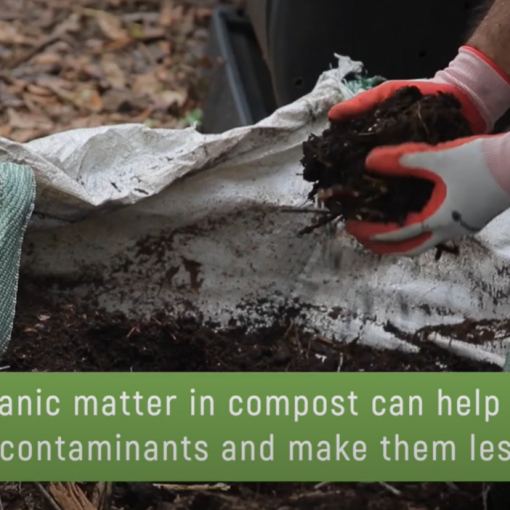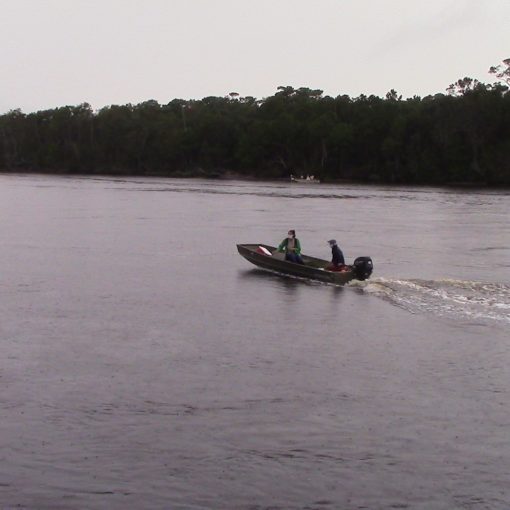As is the case for everyone involved in community-based work right now, here at the Community Engagement Core (CEC) of the Duke University Superfund Research Center (DUSRC) we have been scrambling to find the best ways to continue to serve our primary stakeholders given the rapidly changing conditions and context. We thought that it would be helpful to pause and share with our community partners and other organizations who support communities impacted by chemical contaminants some of the strategies we are applying to adapt and the resources we are finding to be helpful as we all attempt to continue this important work. Even during a pandemic, pressing environmental health concerns do not disappear, and some may even be exacerbated. We hope that you all will continue to reach out to us if there is any way we can support you in addressing the needs of the communities you serve.
Many of the lab-based research projects at the DUSRC are adjusting to restrictions on non-essential operations, but our researchers are pushing forward nevertheless. Luckily, the CEC has many ways of staying connected that will allow us to keep communicating with our partners, sharing helpful resources, and addressing important needs.
As a reminder, our CEC has three primary projects (also called aims):
- Aim 1: Conduct research in partnership with subsistence fish consumers to help this vulnerable population reduce exposures to mercury and other contaminants in fish.
- Aim 2: Engage with communities near former industrial sites to help answer their environmental health questions about long-term health impacts from chemical contaminants at these sites, and assist residents in avoiding or limiting exposures.
- Aim 3: Collaborate with community gardeners to understand and raise awareness about the issue of chemical contaminants in garden soils and help gardeners reduce potential exposures.
New strategies
The CEC is currently using the following strategies to adapt our approaches and continue our work on these aims by focusing on developing online and remote means of disseminating outreach materials, guidebooks and toolkits, as well as policy and community-level data and information:
- Analyzing Fish Consumption Survey Data: In early March, we finished conducting an in-person bankside survey of subsistence fish consumers in the Wilmington, NC, area with help from two Duke graduate student researchers (Steven Yang and Martin Dietz). The CEC will be continuing to analyze and process this survey data over the coming weeks and months, and it will be used to inform revisions to our existing Stop, Check, Enjoy social marketing campaign. We are also beginning to plan the next phase of the research project, which, once travel restrictions are lifted, will include passive sampling (of water) and fish tissue testing in the Cape Fear River.
- Communicating About Fish Consumption Advisories: The CEC, RTC, and partners from UNC- Chapel Hill and NC State University recently finalized and shared a report that resulted from last year’s North Carolina Fish Forum, now available at a new website, www.ncfishforum.org. The partners are beginning to compile a toolkit for local health and wildlife agencies that will offer research-based resources to guide them in communicating with subsistence fish consumers about local fish consumption advisories.
- Healthy Redevelopment Guide for NC Planners: Currently, CEC staff are getting feedback (remotely) from experts and finalizing a reference guide intended to help community planners understand and use environmental health information when planning redevelopment of hazardous waste sites. We are also identifying the best virtual avenues through which to share the guide.
- Online Decision Tool for Gardeners: The CEC continues to refine and digitally pilot test a web-based decision tool, created in partnership with the NC State Cooperative Extension. The online tool will help garden managers gather information about potential sources of soil contamination in their community gardens and provide guidance on how to address them and reduce exposure with simple, easy action steps.
We are also staying abreast of the impact of COVID-19 on the management and remediation of hazardous waste sites across the state. Already, several public meetings have been cancelled to promote social distancing, but many opportunities still exist to submit comments online or by mail. Monitor this NC DEQ site for public comment opportunities to stay engaged remotely: https://deq.nc.gov/news/events/public-notices-hearings
Below, we have compiled a list of additional resources that may be helpful for our community partners, as well as others. Please feel free to reach out if you have questions about any of these materials.
Stay well, and stay safe!
Resources for community partners
General resources on COVID-19:
- US Centers for Disease Control (CDC): https://www.cdc.gov/coronavirus/2019-nCoV/
- NIEHS resources for workers to use for protecting themselves against COVID-19 in the workplace: https://tools.niehs.nih.gov/wetp/covid19worker/
- Practical and actionable steps to stay healthy, keep others healthy, and help out if you can, supported by NIH funds and developed by a professor at the College of Public Health at Oregon State University: https://www.flattenthecurve.com
- COVID-19 Resources from Racial Equity Tools: https://www.racialequitytools.org/fundamentals/resource-lists/resources-addressing-covid-19-with-racial-equity-lens
- Find a local mutual aid organization: https://aarpcommunityconnections.org/search-results/
North Carolina resources:
- North Carolina Department of Health and Human Services (NC DHHS): https://www.ncdhhs.gov/divisions/public-health/coronavirus-disease-2019-covid-19-response-north-carolina
- The North Carolina Inclusive Disaster Recovery (NCIDR) network is compiling a variety of resources for communities dealing with COVID-19: https://bit.ly/COVID-NCIDR
- NC Environmental Justice Network: https://ncejn.org/2020/03/covid-19-coronavirus/
- The North Carolina Department of Commerce is the best resource to find information on how to apply for unemployment insurance.
- COVID-19 Resources for the Duke and Durham communities, respectively: https://sites.duke.edu/covidcommununityresources/; tinyurl.com/ducovid19resources
- NC Health News is covering the Coronavirus crisis: https://www.northcarolinahealthnews.org/
- NC Policy Watch is providing policy perspectives on the pandemic: http://www.ncpolicywatch.com/
- Duke’s Office of Durham and Community Affairs has put together a helpful list of wellness resources: https://sites.duke.edu/covidcommunityresources/category/wellness/
Disinfectants (yes – disinfectants are technically pesticides!):
- US EPA list of registered disinfectants that destroy human coronavirus: https://www.epa.gov/pesticide-registration/list-n-disinfectants-use-against-sars-cov-2
- Guidance from the National Pesticide Information Center on choosing a product: http://npic.orst.edu/ingred/ptype/amicrob/covid19.html
- Infographic on using disinfecting wipes at home & school: http://npic.orst.edu/outreach/amicroinfographic.png
- From the Healthy Schools network, these fact sheets contain additional information and resources on disinfecting schools and daycare centers: https://drive.google.com/file/d/19oMUSXej8jZxccr3RAL6YbwC2ypuvwf1/view
For community gardeners:
- Resources for gardeners to protect against COVID-19, from NC State Extension: https://nccommunitygardens.ces.ncsu.edu/covid-19-faq-for-community-gardens/
- Sign up to offer, or receive, resources related to gardening through the Cooperative Gardens Commission, a network that is promoting “Corona gardens,” similar to the “Victory Gardens” movement: http://coopgardens.com
- See our “10 Healthy Garden Habits” fact sheet if you decide to start your own garden during this time and visit our resources page for more tips on reducing exposure to chemical contaminants in the garden: https://sites.nicholas.duke.edu/superfundcec/gardens/
For people who catch and eat fish in North Carolina:
- Find North Carolina fish consumption advisories online and share this short link if you know people who eating fish they catch locally to help fish consumers reduce potential exposures to chemical contaminants: https://bit.ly/eatsafefish.
- Learn more about this issue at https://sites.nicholas.duke.edu/superfundcec/fish/






